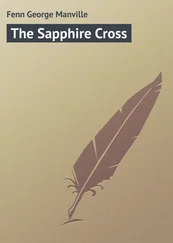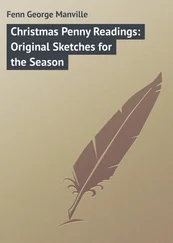George Fenn - Original Penny Readings - A Series of Short Sketches
Здесь есть возможность читать онлайн «George Fenn - Original Penny Readings - A Series of Short Sketches» — ознакомительный отрывок электронной книги совершенно бесплатно, а после прочтения отрывка купить полную версию. В некоторых случаях можно слушать аудио, скачать через торрент в формате fb2 и присутствует краткое содержание. Жанр: foreign_prose, на английском языке. Описание произведения, (предисловие) а так же отзывы посетителей доступны на портале библиотеки ЛибКат.
- Название:Original Penny Readings: A Series of Short Sketches
- Автор:
- Жанр:
- Год:неизвестен
- ISBN:нет данных
- Рейтинг книги:5 / 5. Голосов: 1
-
Избранное:Добавить в избранное
- Отзывы:
-
Ваша оценка:
- 100
- 1
- 2
- 3
- 4
- 5
Original Penny Readings: A Series of Short Sketches: краткое содержание, описание и аннотация
Предлагаем к чтению аннотацию, описание, краткое содержание или предисловие (зависит от того, что написал сам автор книги «Original Penny Readings: A Series of Short Sketches»). Если вы не нашли необходимую информацию о книге — напишите в комментариях, мы постараемся отыскать её.
Original Penny Readings: A Series of Short Sketches — читать онлайн ознакомительный отрывок
Ниже представлен текст книги, разбитый по страницам. Система сохранения места последней прочитанной страницы, позволяет с удобством читать онлайн бесплатно книгу «Original Penny Readings: A Series of Short Sketches», без необходимости каждый раз заново искать на чём Вы остановились. Поставьте закладку, и сможете в любой момент перейти на страницу, на которой закончили чтение.
Интервал:
Закладка:
And those tears coming into one’s eyes seem to shut out all the bright scene, and it goes again; and though there’s the twinkling stars overhead, and the birds nestling around me, yet, instead of the peace and silence, there’s the roar of the court and the streets, the chimneys and tiles all round, the light shining up from the gas, and I know I’m only in the Dials; but it’s sweet to fancy it all, and get away from the life about you for a few minutes; and when ’Arry’s mother sees me like that, she never disturbs me to complain of her aches and pains.
No; never in the country since my boy was taken; but the bright days are coming soon.
Chapter Five.
A Rogue in Grain
“Oh, no; ain’t nothing like such tools as I’ve been used to,” he says. “At my last shop everything was first class, and the place beautifully fitted-up – gas on, new benches, fine joiners’ chest o’ tools, full of beading and moulding planes, and stocks, and bits, and everything first class.”
“Well,” says the guv’nor, “I don’t want to be unreasonable: anything really necessary for the job you shall have; but of course I can’t help my workshop not being equal to your last; but I ’spose it won’t make much difference if you get your wages reg’lar?”
“Oh, no;” he says; it didn’t matter to him; he could work with any tools, he could; ony he did like to see things a bit to rights, and so on to that tune; and then my gentleman gets to work.
“Pity you didn’t stop where you was so jolly well off,” I thinks to myself; and then I goes on whistling, and priming some shutters as the guv’nor had made for a new shop front as he had to put in. You see, ’tain’t many years since our guv’nor was ony a working man like me, ony he managed to scrape a few pounds together, and then very pluckily started for hisself out in one of the new outskirts, where there was a deal of new building going on by the big London contractors, and a deal of altering and patching, which used to be done by the little jobbing men same as our guv’nor. Often and often he’s talked to me about it when working aside me pleasant and sociable as could be; how at times he’d be all of a shake and tremble for fear of going wrong, not knowing how to pay his man or two on Saturday, and obliged to be civil as could be to them, for fear they’d go off and leave him in the lurch over some job or other. Then people didn’t pay up, and he’d have to wait; and then there was the ironmonger and the timber merchant wouldn’t give him credit, being only a small beginner; and one way and another he led such a life of it for the first three years as made him wish again and again as he’d been content to be journeyman and stopped on the reg’lar. But there; he warn’t meant for a journeyman, he was too good a scholar, and had too much in his brains, and, besides, had got such a stock of that “will do it” in his head as made him get on. He knowed well enough that you can’t drive a nail up to the head at one blow, or cover a piece of flatting with one touch of the brush; and so he acted accordingly, tapping gently at first till he’d got his nail a little way in, and then letting go at it till it was chock up to the head, reg’lar fixture; and so on, nail after nail, till he got his house up firm and strong. He didn’t turn master for the sake of walking about with his hands in his pockets; for, as he said to me often, “In my small way, Sam,” he says, “master’s a harder job than journeyman’s.” And so it was; for, come tea-time and the men knocked off, I’ve seen him keep on hard at it, hour after hour, right up to twelve o’clock; while the chaps as left the shop would wink at one another, for some men ain’t got any respect for a hard-toiling master: they’ll a deal sooner slave for some foul-mouthed bully who gives them no peace of their lives.
Sometimes, when he’s been hard pushed with a job, I’ve known him ask ’em to stay and work a bit of overtime, same as he did my gentleman as had been at such fine shops; but “Oh, no,” he says, “couldn’t do it, thanky,” and away he goes.
Well, now, that ain’t the sort of thing, you know; for one good turn deserves another; and my gentleman wouldn’t have much liked it if he’d been refused a day when he wanted it. But, there, he was a poor sort; and one of those fellows as must have everything exact to pattern, and can’t be put out in the least – chaps what runs in one groove all their lifetime and can’t do anything out of it; and then, when they’re outer work, why, they’re like so many big babies and quite as helpless. But he didn’t stay long; he was too fine, and talked too much. The guv’nor soon saw through him, and paid him off; and, according to my experience in such things, those men as have so much to say, and are so very particular to let the guv’nor know how particular they are not to waste a bit of time, generally turn out the most given to miking – skulking, you know.
I ain’t much of a workman, you know; being only a sort of odd man on the place, doing anything – painting or what not; but me and the guv’nor gets on well together, for I make a point of helping him when he’s hard pushed; and I will say that of him, he’s always been as liberal after as a man could be. Say a job’s wanted quick, what’s the good of niggling about one’s hours exactly, and running off for fear of doing a stroke too much. Go at it, I says, and work with the master as if you take an interest in the job and feel a bit of pride in it. Why, bless your heart, ’tain’t only the three or six-and-thirty shillings a week a man ought to work for, but the sense of doing things well, so as he can stand up aside his fellow-man, and look at his work and say, “I did that, and I ain’t ashamed of it.” Why, I’ve known fellows that bowky about their jobs that they wouldn’t own to ’em afterwards. Sashes all knock-kneed, panelling out of the square, or painters with their paint all blistering and peeling off. No; ’tain’t only for the week’s wage a man ought to work, but for a sense of duty, and so on,
Guv’nor and me gets on very well together, for I was with him in his worst times, when he used to work in his shirt-sleeves aside me; and many’s the time I’ve gone into little contract jobs with him, to calculate the expense, when from being over-anxious to get work he’d take the jobs a deal too low, and so I used to tell him. But we always got on together, and I’ll tell you how it was I got along with him.
I always could carpenter a bit, but most of my time’s been spent as a painter – ’prenticed to it, you know, and spent seven years with a drunken master to learn ’most nothing, ’cept what I picked up myself. Well, I couldn’t get a job in town, so I was on the look-out round the outside, when I came to our guv’nor’s place, where he was at work with two men, and him doing about as much as both of ’em. No use to try on for carpentering, I thinks, so I sets up the painting sign and goes in.
“Well,” says the guv’nor, “I can give you a job if you can grain.”
Now that was a rum ’un, for I was only a plain painter, and no grainer; but after three weeks’ hard lines, wife and family at home, and work awful, it did seem tantalising to a willing man to have a week’s wages shown him if he could only do one particular thing. Of course I had dodged it a bit before, but I wasn’t a grainer, and I knowed it well enough; but I thinks to myself, “Well, this is outside London, where people ain’t so very artis-like in their ideas, and perhaps I can manage it – so here goes. I can but try, and if I misses, why, it ain’t a hanging matter.” So I says, “Well; I wouldn’t undertake none of your superfine walnuts, and bird’s-eye maples, and marbles; but if it’s a bit of plain oak I’m your man.”
Читать дальшеИнтервал:
Закладка:
Похожие книги на «Original Penny Readings: A Series of Short Sketches»
Представляем Вашему вниманию похожие книги на «Original Penny Readings: A Series of Short Sketches» списком для выбора. Мы отобрали схожую по названию и смыслу литературу в надежде предоставить читателям больше вариантов отыскать новые, интересные, ещё непрочитанные произведения.
Обсуждение, отзывы о книге «Original Penny Readings: A Series of Short Sketches» и просто собственные мнения читателей. Оставьте ваши комментарии, напишите, что Вы думаете о произведении, его смысле или главных героях. Укажите что конкретно понравилось, а что нет, и почему Вы так считаете.












